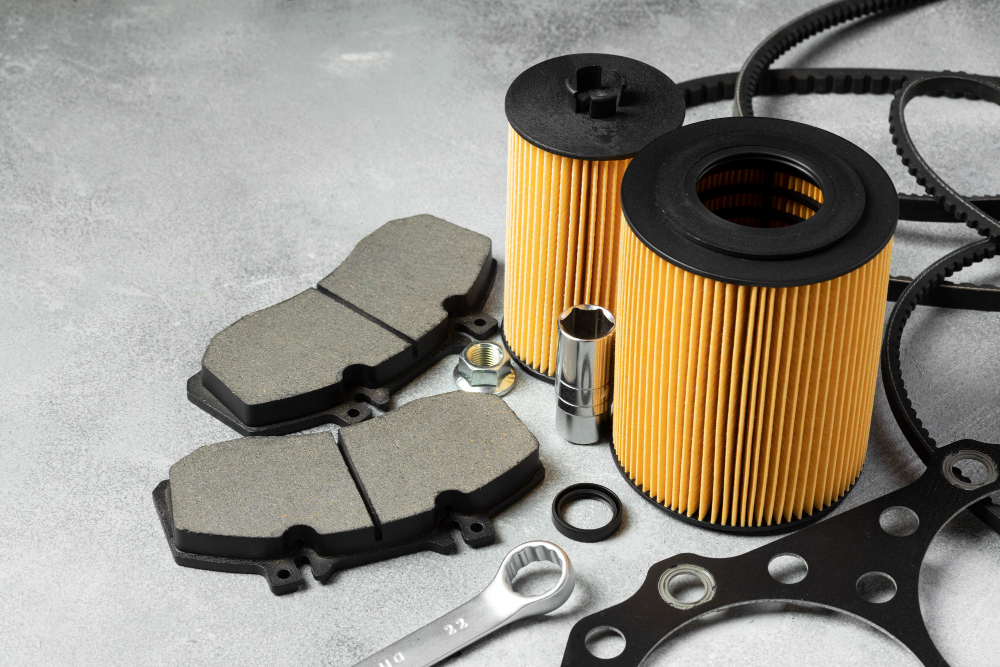Diesel engines are known for their fuel efficiency, exceptional performance, better fuel efficiency and torque. But every great thing comes with a drawback in terms of environmental impacts. One component that can effectively deal with this impact is the Diesel Particulate Filter (DPF). Here’s why diesel car owners should ensure they buy Diesel particulate filter, and improve the overall performance of the vehicle.
What is a Diesel Particulate Filter?
DPFs are essential emission control devices designed to cut down on the amount of soot, or particulate matter, produced by diesel engines. By collecting and disposing of these destructive remains, DPFs play a pivotal role in reducing the levels of air pollution and promoting good environmental friendly atmosphere.
Why DPF Regenration is of utmost Importance?
To maintain the efficiency and cleanliness of the DPF, it must be regenerated. When soot starts gathering in the filter, it can block the flow of exhaust. This will lower the engine performance and heighten the amount of emissions exiting the tailpipes. The burning-off of this soot during regeneration changes it into carbon dioxide and ash, which leaves the filter unclogged. This function ensures that DPF continues to perform and deliver excellent results, ensuring a sustainable approach that will be used to cut on diesel emissions.
Advantages of Utilizing Diesel Particulate Filters
- Environmental Protection: Emissions and removal of hazardous particulate in the exhaust by DPFs ensure the conservation of the environment. These reductions are important because today’s complicated environmental rules require the factories and plants to implement lower emissions.
- Improved Engine Performance: DPF is a very critical component in a diesel engine and if maintained properly, it prevents formulation of soot, facilitating unhampered functioning of the engine, without any chances of blockage or breakdown.
- Fuel Efficiency: Clogged filters burn more fuel, and when the DPF is not blocked with soot, the engine does not need to put in much effort, leading to reduced fuel consumption savings over time.
Want to buy a DPF? Follow these steps
When buying a diesel particulate filter, make sure it matches your vehicle’s specifications and meets emission standards. Look for a durable and compatible filter, and understand whether it uses passive or active regeneration. Choose a reputable brand and check for a good warranty to ensure long-term reliability. A high-quality DPF can improve engine performance and lower maintenance costs.
How to Maintain your DPF?
- Regular Inspections: Check the DPF for damage or excessive soot formation. This might just help you avoid some very costly problems.
- Regeneration Cycles: Ensure that these cycles recur for the burning of soot deposits, either automatically or manually, according to the need.
- Use Quality Fuel and Oil: High-quality fuel and engine oil reduce soot formation and clogging.
- Professional Servicing: Ensure that the vehicle is serviced regularly by a mechanical expert to get the most from the DPF and engine.
In a nutshell, buying a diesel particulate filter is not merely about being legal; it is about making a positive impact on the environment by improving the vehicle’s performance and extending the live of your fuel. Whether you are seeking a replacement, an upgrade, or maintenance, finding out the right DPF is important. Knowing its significance and by ensuring that certain measures are adhered to you will be able to help your car run better while, at the same time, keeping the environment in check.
Note– a properly maintained diesel engine with a working DPF can keep on running for years and pollute the environment a lot less. To get more information and consultation on where to buy the right diesel engine parts and how to maintain them, approach reputable dealers and experts in the same field.





Comments